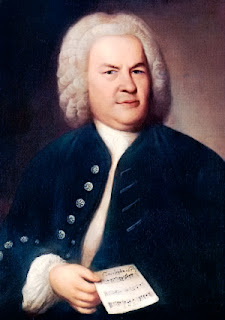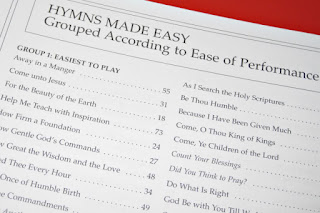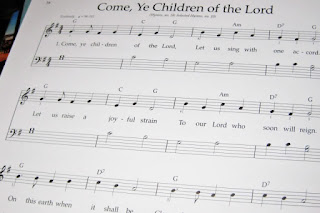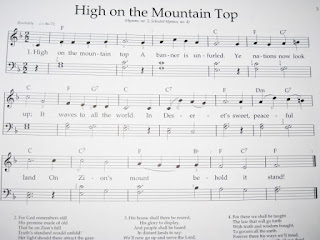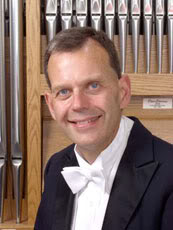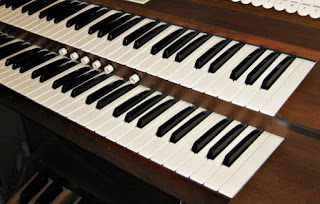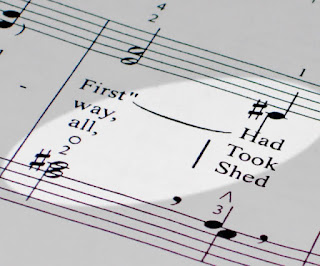"Quiet prelude and postlude music creates an atmosphere of worship that invites the Spirit into Church meetings. The organist or pianist usually plays hymns or other appropriate music for five to ten minutes before and after a meeting. Playing hymns helps members review gospel teachings in their minds."
--Church Handbook of Instructions
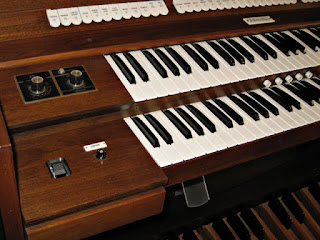
In our last lesson we learned prelude and postlude registrations from Dr. Don Cook's new handout. This lesson we will cover the importance of prelude and postlude, and touch on what types of pieces are appropriate. In future articles I'll go into more specifics, but the purpose of today's lesson is not to teach technique, but to bear testimony of the importance of prelude and postlude music.
Prelude Aids Revelation
Boyd K. Packer has said, "Prelude music, reverently played, is nourishment for the spirit. It invites inspiration. That is a time to, as the poet said, 'Go to your bosom … and ask your heart what it doth know.' Do not ever disturb prelude music for others, for reverence is essential to revelation. 'Be still,' He said, 'and know that I am God.'"
This statement echoes my own feelings on prelude music. With my young, large family it rarely happens, but my favorite thing to do is to arrive to Sacrament meeting fifteen minutes early to sit and ponder as I listen to the prelude music. It doesn't have to be complex; in fact, as long as the music is well-prepared and appropriate, even the simplest pieces have the power of the organist's testimony within them.
Robert C. Oaks shared:
"[W]e should be able to sit quietly during prelude music and meditate on the beauty of the restored gospel, prepare our hearts and minds for the sacrament, and ponder the majesty of our Heavenly Father and the splendor of the Savior’s Atonement. Where better to consider such sacred and weighty matters? These manifestations of our worship will naturally be accompanied by an attitude of reverence.
"...[O]ne Sabbath day as I sat during the prelude music...[m]y wife and I had been seeking spiritual instruction on a particular question in our lives. Thankfully, the answer came through the particular prelude hymn selected. In response to the sweet melody, the Spirit clearly indicated the appropriate course for us....From this experience I gained a special appreciation for the sanctity of a quiet prelude moment."
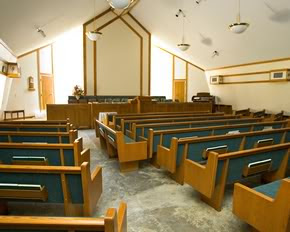
What to Play
The Church Handbook of Instruction states that prelude music should be "quiet" and consist of "hymns or other appropriate music." Merrill J. Bateman has recounted an experience where the organist at stake conference was "absorbed in presenting a Bach concert," and due to the volume level of the organ and corresponding irreverence of the congregation, President Boyd K. Packer told the organist that he "had a special responsibility to bring the Spirit into the building and prepare the members for the meeting." He then asked that organist to continue his prelude from the hymnbook.
Does this experience mean that all prelude must be from the hymnbook? It does not. However, it illustrates the importance of an organist who is sensitive to the Spirit.
Boyd K. Packer has shared, "An organist who has the sensitivity to quietly play prelude music from the hymnbook tempers our feelings and causes us to go over in our minds the lyrics which teach the peaceable things of the kingdom. If we will listen, they are teaching the gospel, for the hymns of the Restoration are, in fact, a course in doctrine!"
I love to play reverent hymn arrangements for prelude music. As I play, I recall the words to the hymns. I register the organ according to the message shared, and bear testimony through song. Generally, the topic of the meeting is known to me in advance and I strive to choose hymns and other sacred pieces whose message reflects that of the upcoming meeting. Sacrament songs are also very appropriate, as they allow the congregation to reflect on Jesus Christ and the upcoming Sacramental ordinance.
When to Start
Russell M. Nelson has stated, "Those participating should be seated at least five minutes before the meeting begins so they can be spiritually prepared for a worshipful experience. During that quiet interval, prelude music is subdued. This is not a time for conversation or transmission of messages but a period of prayerful meditation as leaders and members prepare spiritually for the sacrament."
The Church Handbook of Instruction states that prelude should begin five to ten minutes prior to the meeting. I, personally, believe it should begin no later than 15 minutes prior. However, for stake conference my rule of thumb is 30 minutes before, sometimes even sooner, depending on attendance. Prelude provides the Spirit for the meeting, so as soon as members begin to arrive, I begin my prelude.

Postlude
While prelude music is often spoken of, not much is shared about postlude music. Often it is included as an afterthought--since we have prelude, we've gotta have postlude, right? It's the bookend to the service.
In the Ensign, Jay E. Jensen wrote, "[P]ostlude music ... extend[s] the spirit of the meeting."
What a simple, profound statement. Postlude music is not exit music. It's not celebratory music that signifies the meeting is over and it's time to stretch our legs and visit.
Just because every one is leaving doesn't mean no one is listening.
Postlude music should reflect the spirit of the meeting. If the meeting was quiet and reverent, the postlude music should also be quiet and reverent. If the meeting was jubilant and full of praise, the postlude should also reflect jubilation and praise. It's a good idea to prepare two contrasting moods for postlude, then play the one that is most appropriate.
While prelude is a time when I, personally, prefer to play simple and reverent arrangements, during postlude I don't mind playing more complex hymn arrangements or even classical pieces. However, I always strive to listen to the Spirit--for without the Spirit, what is music?
In the New Era, Eric D. Snider shared a special experience he had with playing postlude music:
After the closing prayer, which built upon the Spirit we already felt, I played some quiet postlude music as people talked and began to filter out. I played “The Spirit of God” (Hymns, no. 2) very softly on the upper keys. It’s hard to explain, but sometimes just believing in the words of the song you’re playing, and having the Spirit with you, causes you to play so that the people listening feel what you’re feeling. You can actually express your emotions through the way you play the song. It doesn’t always happen (at least not to me), but it happened this time. I really felt what I was playing, and I really wanted to convey a message by the way I played it.
"As I played, I noticed that someone was behind me watching and listening. I finished the hymn and quickly glanced to see who it was. It was Elder Smith, someone I didn’t know very well. He was standing there, crying.
"He had already felt the Spirit during the meeting, like the rest of us, and now the music was helping to intensify it. So I kept playing.
"That’s when it struck me. For perhaps the first time, I was playing the piano, not for my own enjoyment and not to receive praise, but to help someone feel the Spirit. I actually, truly wanted to be an instrument in the Lord’s hands and serve him. In this case, the best way I could serve him was to help convey the Spirit to one of his children through music."
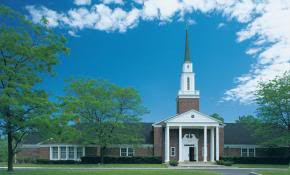
When to begin postlude
At the end of the closing prayer, the congregation audibly voices "Amen," which is followed by just a beat of silence before everyone starts to stand up, gather things together, or chat with a neighbor.
In my opinion, that beat of silence is extremely important in solidifying the mood of the meeting. Often times the organist is busy shuffling music and setting stops while the first members of the congregation head out of the chapel and other members begin chatting, causing this precious time to be lost. However, if the organist begins postlude during that one beat of silence, the congregation intuitively feels the Spirit of the music and members are guided to be more reverent and reflect on the music that is being played--in effect, the music allows them to reflect on the Spirit of the meeting they just attended. It is very important to seize this precious moment; waiting causes the congregation to move on to thoughts of the next meeting or to thoughts of home.
Homework
If you are not currently serving as organist, ask your ward music chair if you may play organ prelude and/or postlude for an upcoming meeting.
Continue using Hymns Made Easy, to prepare simple and reverent prelude pieces in the solo and accompaniment style. Try playing one verse with a chorus registration, playing the second verse with solo and accompaniment registration, then the third verse with a different solo and accompaniment registration.
Prepare 10-15 minutes of prelude for a Sacrament meeting with the topic of your choice, or the topic provided by your ward music chair if you are practicing to play for an actual meeting. Also prepare two 5 minute-segments of postlude music in contrasting moods, as discussed above.
In Conclusion
Prelude and postlude music is often taken for granted in the Church. However, as an organist it is important to make sure that prelude and postlude music for your congregation is well-prepared and selected with the guidance of the Spirit--in this way lives can be touched through music.
Continue on to Lesson 13: Thumb Glissando and a New Hymn.

